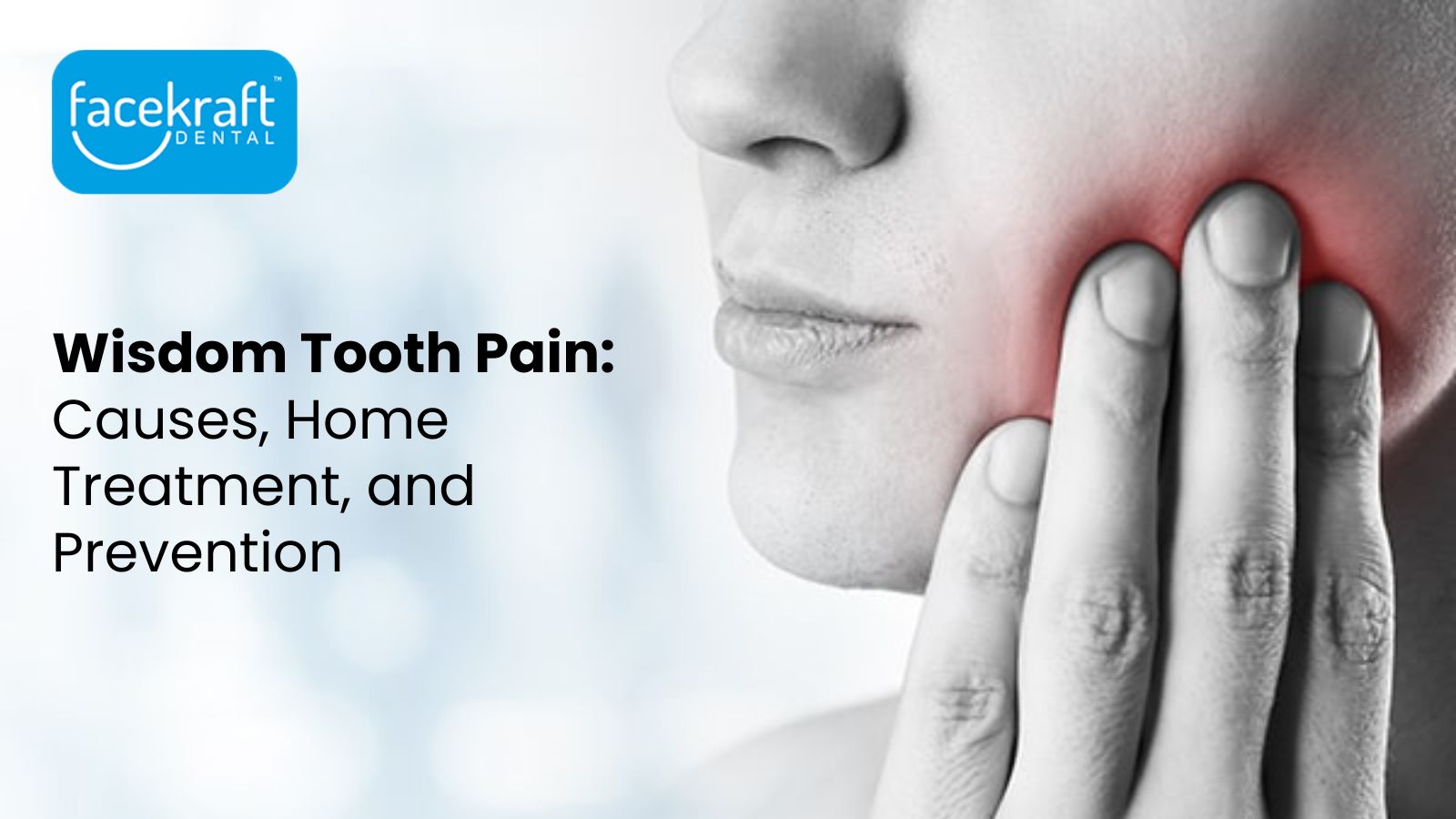Wisdom Tooth Pain: Causes, Home Treatment, and Prevention

Wisdom Tooth Pain: Causes, Home Treatment, and Prevention
Wisdom tooth pain can be quite uncomfortable, and it’s essential to understand its causes, home treatment options, and prevention strategies.
What are Wisdom Teeth?
Wisdom teeth, also known as third molars, are the last set of molars located at the back of the mouth. Most people have four wisdom teeth, two in the upper jaw (one on each side) and two in the lower jaw (again, one on each side). These teeth typically emerge between the ages of 17 and 25. Which is why they are often called “wisdom teeth” as they appear later in life when a person is presumably wiser.
Why do Wisdom Teeth Often Cause Problems?
The main reason wisdom teeth can be problematic is that they frequently don’t have enough space to grow in properly. As a result, they may become partially impacted (partially trapped within the gum and jawbone) or fully impacted (completely trapped and unable to break through the gum).
Here’s some information to help you out:
Causes of Wisdom Tooth Pain:
Eruption: Wisdom teeth, typically start to emerge between the ages of 17 and 25. As they break through the gum line, they can cause pain and discomfort.
Impaction: Sometimes, wisdom teeth don’t have enough room to come in properly, leading to partial eruption or impaction. This can cause pressure on surrounding teeth and lead to pain.
Infection: Partially erupted wisdom teeth can create pockets around them, allowing bacteria to enter and cause an infection known as pericoronitis.
Tooth Decay: Wisdom teeth, like any other teeth, are susceptible to tooth decay if proper oral hygiene is not maintained.
Gum Inflammation: The presence of partially erupted wisdom teeth can lead to gum inflammation and pain.
Home Treatment for Wisdom Tooth Pain:
Please note that home treatments are temporary measures, and it’s crucial to look for the best dentist in Jaipur if the pain persists or worsens.
Saltwater Rinse: Gargling with warm saltwater can help reduce inflammation and alleviate pain.
Over-the-counter Pain Relievers: Nonsteroidal anti-inflammatory drugs (NSAIDs) like ibuprofen can help reduce pain and swelling. Always follow the recommended dosage.
Topical Anesthetics: You can apply an over-the-counter numbing gel or ointment to the affected area for temporary relief.
Cold Compress: Applying a cold compress to the outside of your cheek near the painful area; can help reduce inflammation and numb the pain.
Maintain Oral Hygiene: Brush and floss gently around the affected area to keep it clean, reducing the risk of infection.
Prevention of Wisdom Tooth Pain:
Preventing wisdom tooth pain is not always possible, but some measures may reduce the likelihood of severe discomfort:
Regular Dental Checkups: Visit your dentist in Jaipur regularly for checkups and X-rays, which can help identify any potential issues with wisdom teeth before they cause significant problems.
Proper Oral Hygiene: Brush your teeth at least twice a day and floss regularly to maintain good oral hygiene and reduce the risk of tooth decay and gum inflammation.
Watch for Signs of Impaction: Be aware of any changes in your mouth, such as swelling, tenderness, or difficulty opening your mouth fully, as these may be signs of impaction or infection.
Early Extraction: If your dentist like Facekraft Dental Clinic in Jaipur recommends wisdom tooth extraction due to potential problems, consider having them removed before they cause pain or complications.
If you experience persistent or severe wisdom tooth pain, it’s best to consult your dentist. They can provide a proper diagnosis and recommend the most suitable treatment based on your individual situation.
